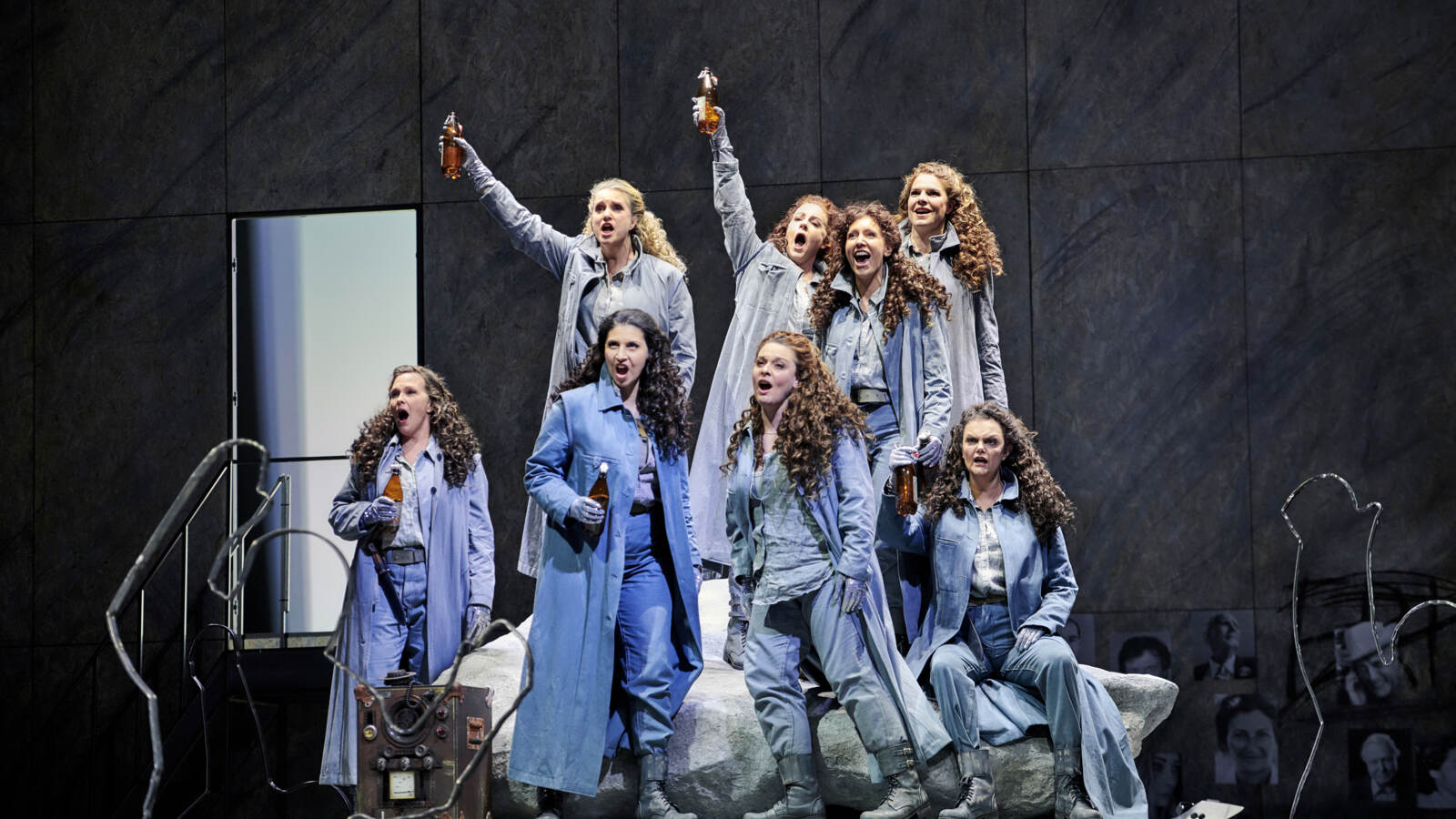In 2018–2021, we staged Wagner’s Der Ring des Nibelungen in a production that took our environmental commitment another step forward. The four operas in the Ring Cycle (Das Rheingold, Die Walküre, Siegfried and Götterdämmerung) address a pressing topical issue: humankind’s overexploitation of natural resources and the dire consequences of doing so. This is why it was particularly fitting to present this epic drama in a production with the minimum possible environmental impact.
The four-year production, in which the entire opera house was encouraged to find new solutions for making performing arts more ecologically sustainable, sparked enormous enthusiasm, not least internationally, and employees from the Göteborg Opera have since been invited to speak at various European industry conferences to present our process.

In connection with the premieres, we highlighted the climate issue in various campaigns. For example, we collected 1,200 end-of-life mobile phones for recycling and started a climate challenge where more than 700 participants pledged to attempt to reduce their carbon footprint by an average of 29 percent. In total, they pledged to attempt to save the world from 1,229 tonnes of carbon dioxide equivalent emissions. This is equivalent to 6,500,000 km of driving in a petrol car.

Throughout the four operas, the Yggdrasil ash tree plays an important role as a symbol of both devastation and budding hope. Ash trees are endangered in the real world – but thanks to the research project Save the Ash (a collaboration between the Swedish University of Agricultural Sciences (SLU) in Alnarp and Skogfors) more refined and resilient ash trees exist today. The Ring Cycle had its finale in autumn 2023, after which SLU handed over ash seedlings to the Swedish Society for Nature Conservation in Vara and the City of Gothenburg.

